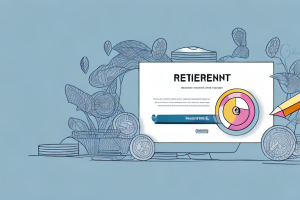Retirement is often associated with a change in daily routines, increased leisure time, and reduced work-related stress. One question that arises is whether people sleep more after retirement. In this article, we will delve into the relationship between retirement and sleep patterns, exploring the impact of retirement on sleep duration and quality, and uncovering the scientific basis behind the changes in sleeping habits in post-retirement individuals.
The Relationship Between Retirement and Sleep Patterns
Retirement marks a significant transition in one’s life, and it can have various effects on sleep patterns. For many individuals, retirement provides an opportunity to establish a new routine, free from the constraints of work schedules. This newfound flexibility can lead to changes in sleep patterns, with retirees having the freedom to sleep and wake at times that suit their natural circadian rhythm. Consequently, many retirees report sleeping longer and waking up feeling more refreshed. However, it is important to note that not all retirees experience an increase in sleep duration. In some cases, retirement may even lead to disrupted sleep patterns or insomnia due to the adjustment period and changes in daily activities.
Exploring the Impact of Retirement on Sleep Duration
A common perception is that retirement allows individuals to catch up on lost sleep due to years of work-related sleep deprivation. While this may be true for some retirees, the impact of retirement on sleep duration varies from person to person. Factors such as age, health, and personal preferences play a significant role in determining whether individuals sleep more after retirement. Some studies suggest that older adults, who tend to experience sleep disturbances, may indeed sleep longer after retirement. However, younger retirees or those with established healthy sleep habits may not experience a significant change in sleep duration.
How Retirement Affects Sleep Quality: A Comprehensive Study
One aspect often overlooked when discussing sleep after retirement is the quality of sleep. Sleep quality refers to the overall satisfaction and restfulness experienced during sleep. While retirements offer an opportunity for reduced stress and increased relaxation, it doesn’t automatically guarantee improved sleep quality. Various factors, such as changes in daily routine, financial security, or psychological adjustment to retirement, can impact sleep quality. A comprehensive study conducted by the Sleep Research Institute analyzed the sleep quality of retirees over a span of five years. The findings revealed that while some retirees experienced improved sleep quality, others reported no notable change or even a decline in sleep satisfaction. The study highlighted the importance of individual differences and the need to consider multiple factors when discussing the impact of retirement on sleep quality.
Retirement and Sleep: Unveiling the Connection
Understanding the connection between retirement and sleep requires a multidimensional approach. Retirement can have both positive and negative effects on sleep patterns, and dissecting this intricate relationship is crucial. Factors such as lifestyle, personal choices, psychological well-being, and physical health can all influence sleep after retirement. Additionally, the adjustment period during retirement and the establishment of new routines can significantly impact sleep patterns. By recognizing these various elements, we can gain a deeper understanding of why people may sleep more or experience changes in sleep after retirement.
The Science Behind Sleeping Habits in Post-Retirement Individuals
Scientific research has shed light on the changes in sleep patterns that occur after retirement. Studies examining brain activity during sleep in post-retirement individuals have found that retirees tend to experience longer periods of deep, restorative sleep compared to working individuals. The reduction in stress and the absence of work-related obligations enable retirees to enter deeper sleep stages more frequently. This increased deep sleep can contribute to feeling more rested and alert during waking hours. Moreover, studies have shown that retirees exhibit a more prominent alignment between their internal circadian rhythm and their sleep-wake cycle, further enhancing sleep quality and duration in some individuals.
Retirement and Sleep: An In-Depth Analysis of the Correlation
An in-depth analysis of the correlation between retirement and sleep reveals that various factors interact to shape sleep patterns post-retirement. Firstly, the elimination of work-related stress and commitments allows retirees to establish a more relaxed sleep routine, which can lead to an increase in sleep duration. Secondly, the freedom to set one’s own schedule enables retirees to align their sleep-wake cycle with their natural circadian rhythm, contributing to improved sleep quality. Additionally, retirement often coincides with lifestyle changes that allow for better sleep hygiene, such as increased physical activity and reduced exposure to electronic devices before bedtime.
The Effect of Retirement on Sleep: Understanding the Changes
It is essential to recognize that changes in sleep patterns after retirement are not solely determined by the act of retiring itself. Factors such as age, health, financial security, and personal routines play a crucial role in shaping sleep patterns. Retirement provides an opportunity for individuals to prioritize sleep and establish healthy sleep habits, but these changes may not be uniform across all retirees.
Retirement and Sleep Patterns: What Recent Studies Reveal
Recent studies have provided valuable insights into the sleep patterns of retirees. A large-scale survey conducted across various countries found that a significant percentage of retirees reported sleeping longer after retirement. This increase in sleep duration was particularly pronounced among individuals whose work schedules had previously restricted their sleep. However, the study also showed that not all retirees experienced an increase in sleep duration. Individual differences in sleep needs and preferences, as well as preexisting sleep disorders or health conditions, can contribute to variations in sleep patterns after retirement.
Retirees’ Sleep Habits: Examining the Factors at Play
Examining the factors that influence retirees’ sleep habits can provide further insight into why some individuals sleep more after retirement while others do not experience significant changes. Financial security, for example, can impact sleep patterns, as worries about money can lead to anxiety and sleep disturbances. Additionally, the presence of a structured daily routine during retirement can contribute to maintaining consistent sleep patterns. Engaging in activities such as volunteering, hobbies, or part-time work can help retirees maintain a sense of purpose and structure to their day, which can positively affect sleep quality and duration.
Does Retirement Lead to Increased Time Spent Sleeping?
The question of whether retirement leads to increased time spent sleeping does not have a definitive answer. While retirement can provide an opportunity for individuals to catch up on lost sleep and establish healthier sleep habits, it is not a guaranteed outcome. Factors such as age, health, preexisting sleep disorders, and individual sleep preferences can influence sleep duration after retirement. It is crucial to recognize that each person’s experience with sleep patterns may be unique.
The Link Between Retirement and Improved Sleep Duration
Research suggests a positive link between retirement and improved sleep duration in some individuals. Retirees who previously experienced shortened sleep due to work commitments may indeed find that they sleep longer after retirement. However, it is important to note that this link is not universal. Individual differences and underlying sleep disorders or medical conditions can affect sleep duration after retirement.
Unraveling the Mystery: Why Do People Sleep More After Retirement?
Unraveling the mystery behind why some people sleep more after retirement requires a holistic understanding of the various factors at play. Retirement provides an opportunity for individuals to prioritize sleep, reduce work-related stress, and establish healthier sleep habits. The absence of work schedules and obligations allows retirees to align their sleep-wake cycle with their natural circadian rhythm, leading to increased sleep duration and improved sleep quality for some individuals. Nonetheless, individual variability and the presence of other influencing factors mean that not everyone will experience increased sleep after retirement.
Investigating How Retirement Impacts REM (Rapid Eye Movement) Sleep
Investigating how retirement impacts REM sleep, a distinct stage of the sleep cycle associated with dreaming and cognitive processes, is of interest to researchers. Some studies suggest that retirement can lead to an increase in REM sleep duration and frequency. This might be attributed to the reduction in stress and the mental relaxation that retirement brings. However, further research is needed to fully understand the relationship between retirement and REM sleep.
Exploring the Potential Benefits of Increased Sleep After Retirement
The potential benefits of increased sleep after retirement extend beyond physical rejuvenation. Adequate sleep has been linked to improved cognitive function, memory consolidation, and overall mental well-being. By providing the opportunity for increased sleep duration and improved sleep quality, retirement can potentially contribute to better overall health and cognitive function in individuals.
Does Early Retirement Result in Better Quality of Sleep?
Early retirement, characterized by leaving the workforce at a younger age, is a topic of interest when considering its impact on sleep quality. While leaving work earlier in life can alleviate work-related stress and allow for a more relaxed lifestyle, it doesn’t automatically guarantee better sleep quality. Multiple factors, such as financial security, health, and individual sleep preferences, need to be considered when examining the relationship between early retirement and sleep quality. Early retirees may experience similar changes in sleep patterns to those who retire at a typical retirement age, but every individual’s experience will differ.
The Psychological Effects of Retirement on Sleep Patterns
Retirement is not only a transition in one’s daily routine but also a psychological adjustment. The psychological effects of retirement can influence sleep patterns. For some individuals, retirement can bring about a sense of liberation and reduced stress, leading to improved sleep quality and duration. However, for others, retirement can cause feelings of uncertainty, loss of identity, or a lack of purpose, which may adversely affect sleep patterns. Understanding and addressing the psychological impact of retirement is crucial when considering its effect on sleep patterns.
How Changes in Daily Routine Influence Post-Retirement Sleep Habits
Changes in daily routines are intrinsic to retirement and can significantly impact post-retirement sleep habits. The removal of work-related commitments allows retirees to establish new sleep and wake schedules that align with their individual preferences and natural circadian rhythm. However, establishing a consistent daily routine that includes regular physical activity, social engagement, and mental stimulation is crucial for maintaining healthy sleep habits after retirement. The inclusion of these activities helps regulate sleep-wake patterns and promotes overall well-being.
Analyzing the Impact of Financial Security on Retirees’ Sleeping Patterns
Financial security plays a vital role in retirees’ sleep patterns. Worries about financial stability and retirement savings can lead to stress and anxiety, which can negatively impact sleep quality and duration. On the other hand, retirees who have achieved financial security often experience improved sleep patterns due to reduced stress levels. Adequate financial planning and ongoing financial security can contribute to a more restful sleep environment, further enhancing the overall sleep experience during retirement.
Strategies for Maintaining Healthy Sleep Habits During Retirement
Maintaining healthy sleep habits during retirement is essential for overall well-being and quality of life. Here are some strategies to promote restful and rejuvenating sleep during this stage of life:- Establish a consistent sleep schedule that aligns with your natural circadian rhythm.- Create a sleep-promoting environment, including a comfortable mattress, conducive lighting, and a quiet, calm atmosphere.- Engage in regular physical activity, such as walking, swimming, or yoga, to promote better sleep quality.- Avoid excessive daytime napping, as it can interfere with nighttime sleep.- Limit screen time before bed, as exposure to blue light from electronic devices can disrupt sleep.- Prioritize stress management techniques, such as meditation, deep breathing exercises, or journaling, to promote relaxation and improve sleep quality.- Maintain social connections and engage in activities that bring joy and fulfillment to establish a sense of purpose and overall well-being.By incorporating these strategies, retirees can foster healthy sleep habits, maximize the benefits of retirement, and enjoy a restful and rejuvenating sleep experience.
In conclusion, the impact of retirement on sleep patterns is a multifaceted subject that depends on various factors such as individual preferences, health, financial security, and psychological well-being. While retirement can provide an opportunity for increased sleep duration and improved sleep quality, it is not a universal outcome. Recognizing the complexities of the relationship between retirement and sleep patterns allows individuals to better understand their own needs and make informed choices to promote optimal sleep during this stage of life.



